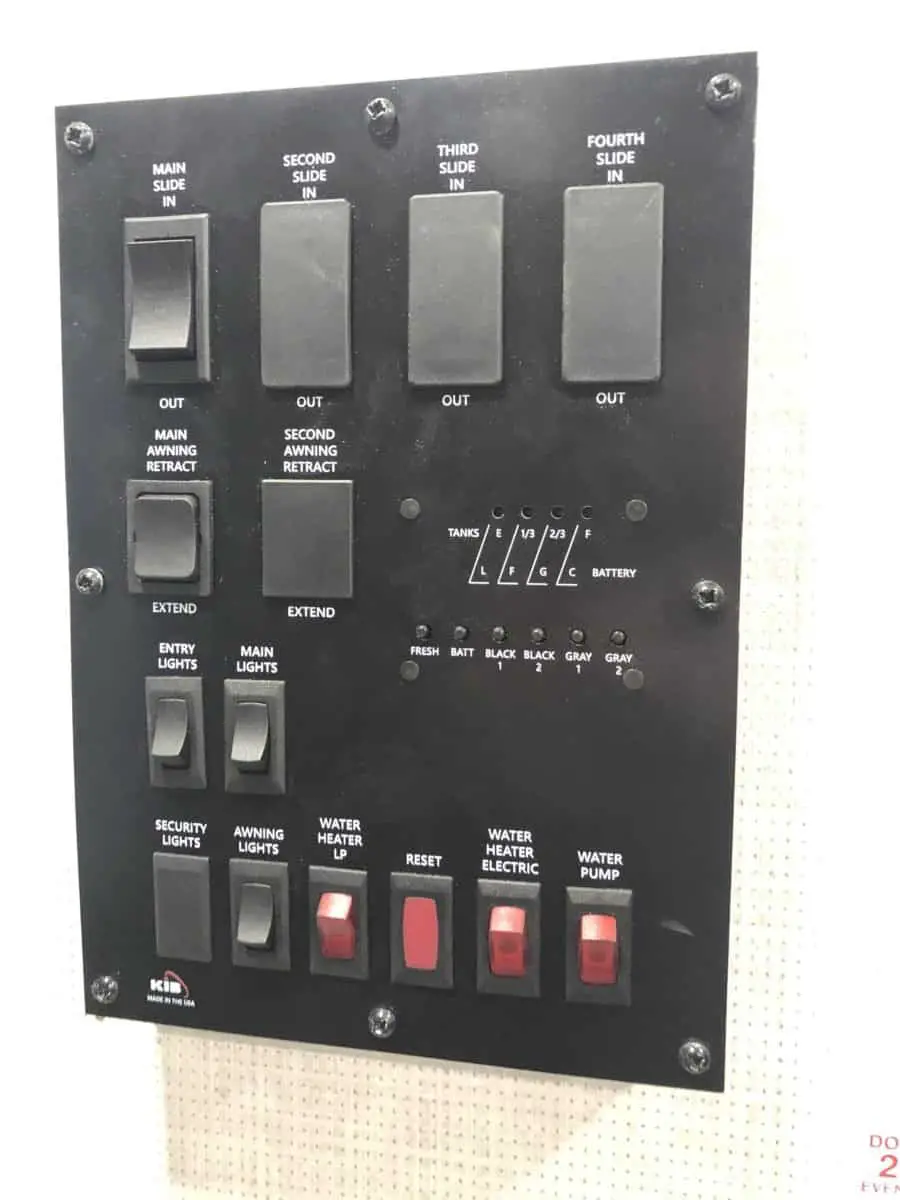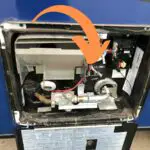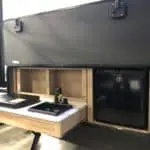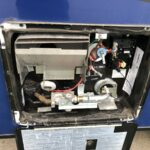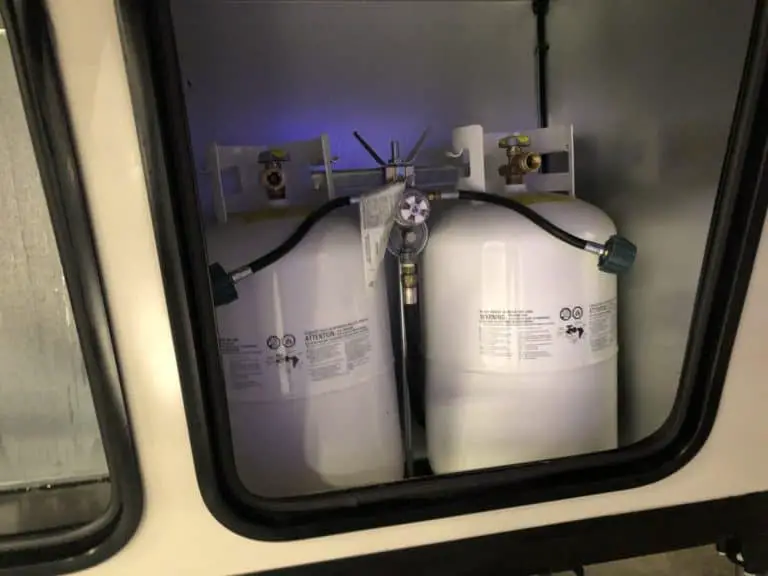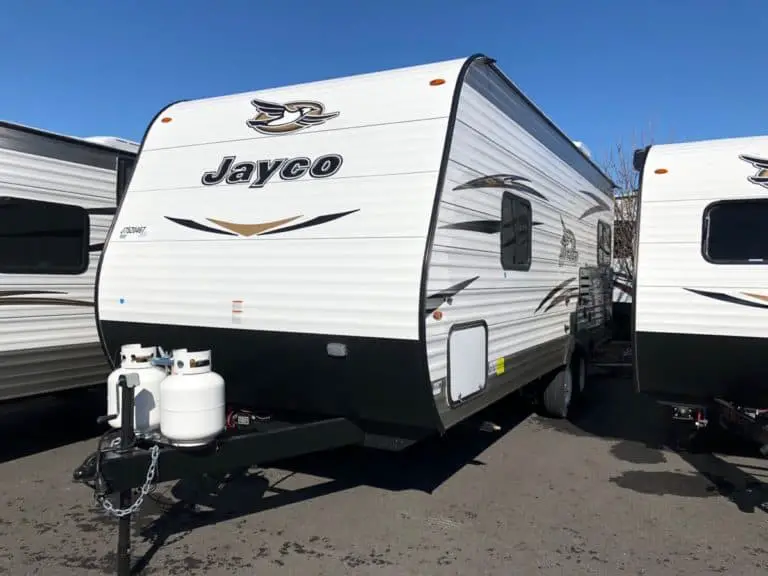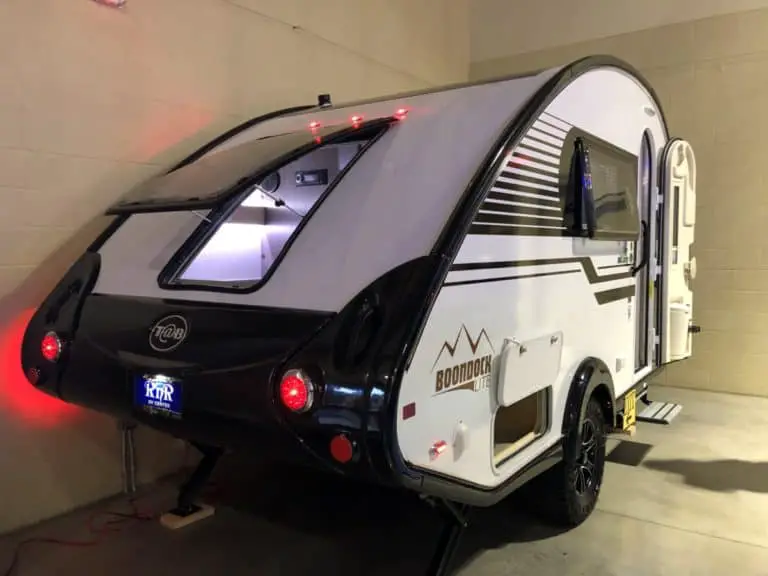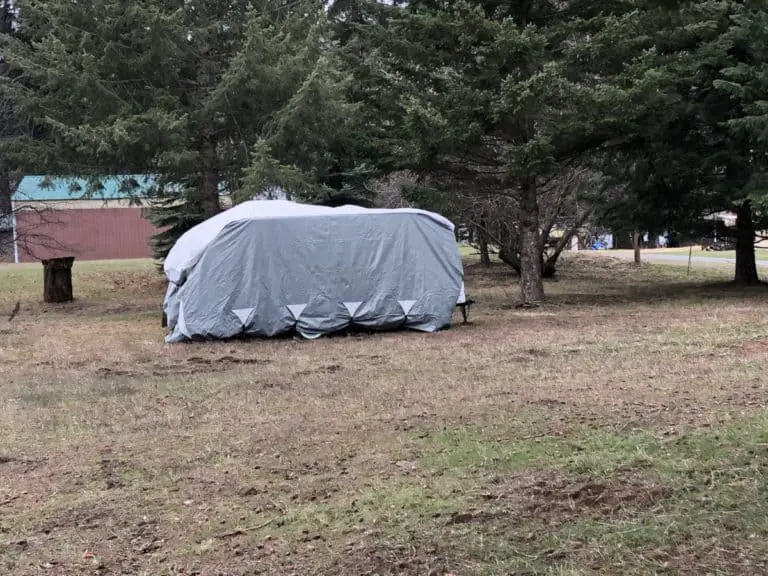What to Do If My RV Circuit Breaker Keeps Tripping and How to Fix It?
Whether it is the beginning of the season or the end of it, the circuit breaker in your RV could trip. It’s the last thing you want, especially if you are in the middle of a trip. It is even worse when your RV circuit breaker keeps tripping. Understanding why it is tripping is key to fixing it.
If your RV circuit breaker keeps tripping, you need to locate the circuit breaker. It may be tripping because of blown fuses, power draws, electrical issues, or because of an issue with the circuit breaker itself. Once you find where the issue is coming from you will be able to fix the issue.
A circuit breaker in your RV that keeps tripping can be a sign of a serious issue, but it can also be an issue that you can fix yourself.
What to Do If Your RV Circuit Breaker Is Tripping
If you notice that your RV circuit breaker keeps tripping, then you need to take a look at what is possibly causing the issue. Sometimes it is a simple fix.
You should take note as to how often your circuit breaker is tripping. If after you reset the circuit breaker, and it still trips, you will need to take a closer look at what is causing the issue.
An RV circuit that continuously trips is a sign that too much electricity is being drawn from the system, or also known as a circuit overload. Remember, a circuit breaker is a safety feature. It prevents further issues from occurring by stopping the electrical currents before they get too hot or dangerous.
So what do you do if your RV circuit breaker keeps tripping? First, you need to:
● Understand the circuit breaker.
● Locate the circuit breaker.
● Understand all the appliances in your RV
These may seem like simple enough things, but they can go a long way in fixing your circuit breaker of your RV.
Understanding the RV’s Circuit Breaker
The first thing you need to do, if you have not already, is to understand the circuit breaker in your RV.
In your RV there are numerous electrical appliances. Some of them may include:
● Lighting fixtures
● Air conditioners
● Refrigerators
● Microwaves
● Water pumps
This is not a comprehensive list, but it offers an idea of what is feeding energy into the circuit breaker. All these appliances, and several others, are attached to the circuit breaker.
As mentioned before, the circuit breaker acts as a safety measure. When there is a large power draw or a short circuit, the circuit breaker switches off. This immediately stops the electrical current, which prevents further damage, such as fire. Essentially, when you use too much electrical power (like when you use all the appliances simultaneously) the circuit breaker will trip.
The circuit breaker has a map. You need to be cognizant of what appliances are linked with which breaker switch. Everything inside the circuit breaker should be labeled. This will make it easier to troubleshoot your issue later on.
Locate the RV’s Circuit Breaker
The circuit breaker is a major part of the electrical system in an RV. When your RV circuit breaker keeps tripping it is a sign of something wrong. The most common way to know if your circuit breaker is tripping is when certain appliances do not work suddenly. The electricity has been cut off to these appliances.
When your RV circuit breaker trips, you need to locate the circuit breaker. However, some people do not know where it is located. If a power outage were to happen at night, you want to know exactly where the breaker is to avoid any other issues that may arise in the dark.
Where the circuit breaker is located depends on the model RV you own. Some models may have a circuit breaker panel behind the cabinets or the refrigerator. You may also find the circuit breaker behind a bed or most of the time in plain sight.
In other models, the circuit breaker may be located outside of the RV. The best way to locate the circuit breaker is to reference the owner’s manual that came with the RV. You will know the circuit breaker when you see it. It has a little door, and inside you will see the switches that are connected to all the appliances in your RV.
Once you have located the RV’s circuit breaker, take note as to what switches are clicked off or in the tripped position. If labeled properly, this will tell you exactly what part of your RV is causing the short circuit.
Understand All the Appliances in Your RV
This may seem simple, but it is important nonetheless. You should have an understanding of what appliances are active in your RV. You should remain cognizant of what is running and what is not.
This is an important part of the troubleshooting process. The problem may just be that you were running too many appliances at once and this caused the RV circuit breaker to trip. You need to remain mindful of how you utilize the appliances in your RV.
If you have a 30 amp RV, you cannot run the water heater, air conditioner, and a hairdryer at the same time. Most of the time for high draw items like this you can only run one at a time depending on the wattage.
It is also important to know how much energy each appliance takes. This does not mean you need to know specific wattage, but it is important to know if the appliances use a lot of energy or not.
Why is this important? It is important because then you will be able to make informed decisions on how you use your appliances so that you can avoid, to the best of your ability, future shortages in your circuit breaker.
How to Fix an RV Circuit Breaker
You have experienced a tripped circuit breaker, and you have located the circuit breaker and understand what appliances are likely to blame. Now what? How do you fix an RV circuit breaker that keeps tripping?
You need to troubleshoot the issue. For example, it could be something very minor. Possibly you were running your air conditioner on high at the same time you were using other appliances. In the summer, it can be difficult to not use your air conditioner. An easy fix would be to simply turn the air conditioner off while you need to run the other apliance, which would use less energy.
If your RV circuit breaker just needs to be reset, this can be done by following a few simple steps:
● Locate the circuit breaker.
● Look for a switch that is turned off to the side. You will notice a switch that is different from the rest. This is the one you are looking for. It may even have a red sticker to show it is off.
● The switch that is off to the side is connected with a certain appliance. This should be labeled.
● Turn off the appliances. You should unplug and turn off any appliances whose correlating circuit breaker switch is toggled off. This is a safety precaution. You do not want to get electrocuted.
● Push the tripped switch toward the off position before switching it to the on position. In some circuit breakers, this is necessary. It is better to remain cautious and do this so that you do not need to repeat any steps.
● Turn on the appliances. Now that the circuit breaker has been reset, you can turn on the appliances.
You should wait a few minutes. If the breaker does not switch off then it has been successfully reset. However, if the RV circuit breaker keeps tripping then you have discovered a different issue.
There are several reasons why a circuit breaker may trip again. This can range from electrical issues to blown fuses.
Why Does an RV Circuit Breaker keep tripping after being reset?
There are many reasons why an RV circuit breaker keeps tripping. The biggest culprit is a faulty appliance. As mentioned above, resetting your circuit breaker can give you great insight into what is causing the issue. It could just be you need to replace an appliance.
But what else can be causing your RV circuit breaker to trip? There are three basic things you can be looking for:
● Blown fuses
● Short circuits
● Electrical Issues
These issues can point to why the circuit breaker has tripped. Moreover, a circuit breaker trips as a safety precaution to protect you and your RV from electrical damage.
Blown Fuses
A fuse is used for both types of electrical energy: AC and DC currents. Fuses are similar to circuit breakers in that they act as a type of safety precaution. A fuse is blown to protect the RV when something goes wrong.
If you noticed that your circuit breaker has tripped, you should check the fuse box. If you notice that there is a blown fuse you need to replace it.
Make sure you get a proper replacement fuse. Fuses are not interchangeable, so be sure you are getting a like-for-like replacement. Once you have inserted and replaced the burned-out fuse, the energy should flow properly. If not, there may be a larger problem.
Power Draws
As mentioned earlier, faulty appliances can be blamed for a lot of RV circuit breakers tripping. But why?
A faulty appliance can draw too much energy. Think of the appliance as a leech. It continuously draws electricity, but when it is faulty it is drawing more than it should.
Each RV has a limit as to how much energy it can use. When an appliance is drawing more than it should it is throwing off this limit and probably exceeding it. This is when the breaker will trip.
Additionally, when you use too many appliances at the same time can have the same effect. This can also draw too much energy, which will push you over your RV’s limit and cause the breaker to trip.
Be sure to remain cognizant of what appliances you are using and how you are using them. A power draw is a simple issue to fix. You just need to reset the breaker and either replace the faulty appliance or use discretion with how you use your appliances.
Electrical Issues
There could also be electrical issues within the RV itself. There could be loose wirings somewhere inside the RV. Additionally, if your system runs with a 12-volt system, there may be something wrong there. An interruption in the 12-volt system can cause the RV circuit breaker to trip.
When your travel trailer is rattling down the road, wires can become loose and cause a short circuit. It may be time to call an electrician if you are not familiar with how a 120v system works.
Here is how you can check your 12-volt system to see if there is any issue:
● Check the fuse. Sometimes a fuse problem does not mean the fuse has blown. The fuse could be loose.
● Check the connections. Make sure the connections between the breaker and the circuit breaker panel are tight. If they are loose, they could be interrupting the 12-volt system.
● Check the batteries. Your batteries’ connection may be loose.
● Check the connections on the converter.
If your troubleshooting does not illuminate an issue then either the issue is located elsewhere, or there is a problem with your converter, which should be seen by an expert.
The RV Circuit Breaker Could Be the Issue
Over time, the RV circuit breaker will wear down. It is like any other appliance. A circuit breaker that has been repeatedly tripped over time is the most likely to give out.
If your circuit breaker continually trips and has been doing this for quite some time no matter how many times you troubleshoot it and “fix” the issue, then the issue may be the circuit breaker itself.
However, it could also be a minor issue with the circuit breaker. There could be corrosion on the reverse side of the breaker. Make sure all units are off before checking.
Reset the Ground Fault Indicator
Your RV may have a Ground Fault Indicator (GFCI). This unit works similarly to a circuit breaker. It will cut the power off if too much power is being used or if a circuit becomes unsafe. Resetting a GFI is easy because it has a reset button on its unit that just needs to be pressed.
If you suspect that you need to reset the GFI then press the reset button. If this fixes your issue then you are all set.
When to Call a Professional
Oftentimes, most issues can be fixed without needing a professional. When an RV circuit breaker keeps tripping, you should troubleshoot the issue yourself. You can get a lot of information by troubleshooting the issue yourself, which can be helpful later on if you decide you need a professional to help.
So, when do you need to call a professional to help fix your circuit breaker? The answer comes down to the specifics of your situation.
If you go through all the methods and troubleshooting options already mentioned but still cannot find a fix to your problem, then it may be time to call a professional. Moreover, there are certain times when getting a professional is necessary:
● Testing the circuit breaker. If you believe there is something wrong with the circuit breaker itself, then it may need to be tested. However, testing a circuit breaker is not a task someone who is not knowledgeable of electricity should undertake, as there are live wires that need to be avoided. Circuit breakers are safe, like under $10. Just replace it if it is questionable.
● Replacing the circuit breaker. If the circuit breaker needs to be replaced, a professional will need to be called. The whole unit needs to be removed and replaced, and you need to know about the installation and electrical components for this to be done smoothly without accidents.
The last thing you want is to get electrocuted. It is important to know your limits. If you do not know what you are doing when it comes to the more complex fixes, it is important to call someone who does.
When you are working with electricity, you need to use extreme caution. If you touch the wrong components, forget to turn off the right switch, or any other combination of minor mishaps, it could cost you your life. Always use caution and discretion when working with the electrical components of your RV.
Conclusion
If your RV circuit breaker keeps tripping, it could be a simple fix. The most important thing to do is to troubleshoot your issue. Make sure you understand how the circuit breaker works in your RV and how it is set up for each appliance.
Once you know where the issue is, you can begin to eliminate probable causes. Check the fuses, the appliances, the circuit breaker itself, the 12-volt system, and the GFI. You may find that the issue is minor and can be fixed quickly and on your own.
However, remember that electrical issues are no light subject. Be sure to use caution and when in doubt, call a professional who has the knowledge and expertise to fix your issue without any fear of injury or further issues.
Be the first to be notified about FREE tips, hints, coupon codes, and email-exclusive information. All for FREE!

